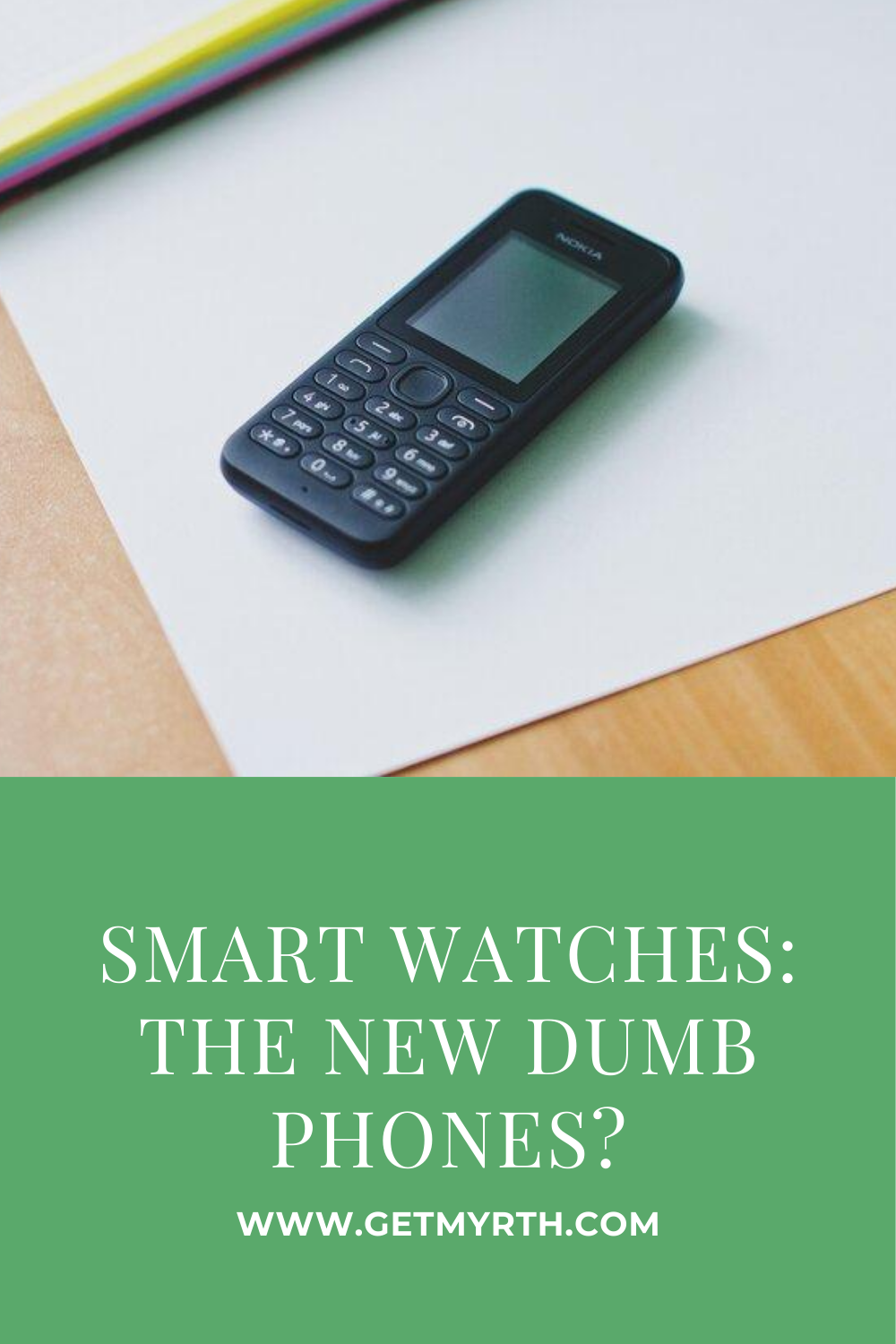Smart Watches: the New Dumb Phones?
Here at Myrth, we really care about reducing our unproductive screen time. We're strong believers that some screen time can be healthy, but a lot of screen time is useless distraction.
To avoid that useless distraction, we've turned to all sorts of techniques. There's the classic standby of putting your phone in airplane mode when you're trying to work. There's the even more low-tech version, which is just to put your phone in another room all together. There are apps that will monitor how much time you've spent using your phone, help you track your phone usage over weeks or months, and lock you out of certain sites or apps after you’ve spent your allotted time on them.
But what if none of those work for you? Well, you're not alone.
You might have seen our previous post about how many of these social media apps we rely on are designed to be addicting. In fact, many of them use the same psychology and strategies that are used to make slot machines and gambling so addictive for people. You know that pull down and release mechanism on a slot machine? Same thing applies when you pull down to refresh your social media feed. You never know whether you're going to get a good post or a dud, but the anticipation of a potentially great post keeps you refreshing.
And because these apps are designed to be addictive, it can be really hard to control our use of them. For some people, they find that they're just not able to do it on their own. Those people have turned to using what are colloquially called “dumb phones,” to differentiate them from the highly addictive smartphones we've all been using.
Dumb Phones: the Benefits and Drawbacks
These dumb phones or light phones, as they are sometimes called, are designed to do the bare minimum. They can make calls, send and receive text messages, maybe perform a couple of other basic functions, but you're not going to be able to load a bunch of addictive apps on them and spend 8 hours a day scrolling. They occupy a spot similar to the old flip phones, which some people never abandoned and others are going back to.
People have seen some success with using the dumb phones. For one thing, the phones certainly reduce screen time. If you don't have access to the apps that are begging to distract you, you're not going to be able to waste hours on them. For another, people find that they are more productive when they can get away from the distractions and just focus, but they still need to be in contact with loved ones or colleagues in case of urgent issues. That's when a dumb phone is pretty useful.
But it has its drawbacks, too. For one thing, most people don't carry just a dumb phone. It's fairly common to see a person carrying both the dumb phone and a smart phone. They'll turn the smart phone off and put it away for extended periods of time, but then they will pull it out when they need it for more advanced operations.
Dumb phones are yet another device that can get lost in the bottom of your bag, and if you're like so many of us, you're probably hauling a decent amount of stuff. Dumb phones take up space in your pockets if you're not carrying a bag.
Smart Watches: the Next Dumb Phone?
Here's what we've noticed: a smart watch can operate pretty similarly to a dumb phone. You can make and receive calls on it, send and receive text messages, and perform one or two other basic functions, but because of the size of the screen and the comparatively slower processors, it's not very appealing to use the more addictive apps on them. The smart watch is good for a quick check, and that's about it. And we are not talking about the overly fancy iWatch where you can still perform a lot of distracting functions, we are more referring to simpler smart watches.
Unlike a dumb phone, it's not going to get lost in the bottom of your bag, and it fulfills some of the same needs for people who want to reduce distractions. Maybe you saw the recent post from Myrth team member Lauren, where she talked about how surprised she was to find that having a smart watch actually made life easier for her. She found that it reduced her screen time, gave her some helpful personal tracking tools, and led to a fun bonding activity with her small child.
Who knows where these devices will go in the future, but one thing's for sure: as the world of technology around us becomes ever more distracting, with more notifications and pings and beeps and boops, people are increasingly looking for ways to escape those distractions and sink back into a mode of working that allows for extended periods of uninterrupted thought.
Dumb phones are one way to do that, but we think the smart watch is an even better bet. Keep an eye on trends over the next few years to find out!
Have you switched to a dumb phone? Do you find that it streamlines your life or makes it more complicated? Drop us a comment below and let us know.
P.S. - You can save and share this post on Pinterest using this image:


